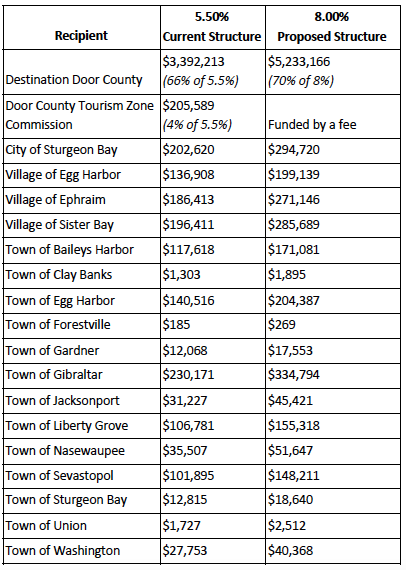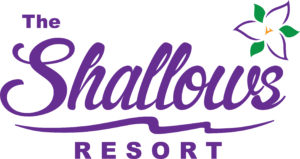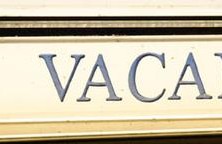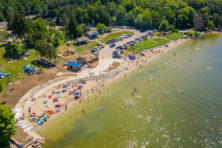Time to Raise the Room Tax?
- Share
- Tweet
- Pin
- Share
Municipalities are considering an increase in the room-tax rate in what would be the first rate increase since the tax began in 2007.
The Town of Baileys Harbor will be the first to formally consider a resolution recommending an increase in the room-tax rate from 5.5 to 8 percent during its Nov. 23 meeting. The Village of Egg Harbor discussed the topic during its Nov. 9 meeting but did not take any action.
Dave Eliot – chair of the Town of Baileys Harbor and owner of Peninsula Publishing & Distribution, which publishes this newspaper – is leading the push to raise the countywide rate. That includes a reallocation of existing revenue to better align with state law and a filing fee on room-tax applications.
Eliot said the increase could bring in much-needed revenue to municipalities, better support the administration of the commission that administers the tax, and allow Destination Door County (DDC) to better serve the tourism organizations in each community.
“We’ve been investing in tourism for 15 years, but our municipalities haven’t had the same opportunity to do that for locals and for visitors,” Eliot said during an interview.
However, lodging operators worry that more money for municipalities should not fall on the lodging sector alone, particularly following a season of uncertainty in the industry because of COVID-19.
“There are people who feel the pinch, and the higher that rate gets, they’re going to assess competition in other areas and look at the total cost inclusive of room tax,” said Greg Stillman, owner of the Parkwood Lodge in Fish Creek. “The higher that gets, the more likely they will select someplace else.”
Although the room tax is a pass-through – that is, customers pay it instead of lodging operators – visitors may reconsider trips to Door County if the total at the bottom of the lodging receipt gets too high. The average summer room rate is approximately $200, which would result in a $16 room tax per night at an 8 percent rate, compared to $11 at the existing 5.5 percent rate.

Bob Dickson, an Egg Harbor Village Board member and owner of The Shallows Resort, was open to an increase that would better support the Egg Harbor Business Association, but he noted that an increase in the rate would increase his own costs through higher credit card fees. He said 11 percent of what he collects through a credit card transaction goes straight toward taxes and fees.
“Now we’re going to raise that higher,” Dickson said. “I guess I get tired of collecting all that room tax to fund everything … but the big upside that Dave Eliot is talking about is how to fund the business association, and we always talk about that every year – how to fund that so they are a viable organization.”
Egg Harbor Village Board member Joe Smith questioned the need for additional money going to DDC.
“Why do these people feel that the Visitor Bureau [DDC] needs so much more money?” Smith asked. “Because they’re doing such a fantastic job for us? I sarcastically ask.”
State law requires that 70 percent of room-tax revenue be used for tourism promotion or tourism development. In Door County, DDC receives 66 percent of revenue, while the Door County Tourism Zone Commission (DCTZC) – which administers and collects the room tax – receives 4 percent. The remaining 30 percent goes back to the municipality where the tax was collected. Municipalities can spend that money on anything from road repair and heating bills to festivals and parks.
Given that DDC receives only 66 percent of room tax, Eliot said the existing allocation may be in violation of the state law that requires 70 percent to be used on tourism promotion. DCTZC’s operating costs are not tourism promotion or development.
Under the proposed resolution, DDC would receive 70 percent of room-tax revenue, with 30 percent still going to municipalities. The DCTZC would instead earn its revenue through annual filing fees that lodging operators would pay. Those fees would be set annually based on DCTZC’s funding needs, which have grown significantly since the commission began in 2007.
Josh VanLieshout, chair of the DCTZC, said administration of the commission has gotten more challenging with the growth in nontraditional lodging.
“Online lodging marketplaces [Airbnb, Vrbo] don’t make it easy for the owners to comply with local ordinances,” VanLieshout said. “That’s consumed more and more of the administrator’s time.”
Meanwhile, the number of permits has grown from 643 in 2007 to 1,273 in 2020 – a 93 percent increase – but the commission still has only one staff member.
“No doubt we could add more staff to handle the increase in volume,” VanLieshout said.
Eliot said he hopes that an increase in the rate would be accompanied by DDC being a more involved partner in the administration and support of local tourism organizations. The increased revenue going to DDC from a higher room-tax rate could be funneled to the local business and tourism organizations, freeing up additional funds for municipalities to operate.
The Town of Baileys Harbor gives the Baileys Harbor Community Association approximately $45,000 annually – an expense Eliot believes could fall on DDC, given a higher room-tax rate. Between the increased allocation of room tax to 70 percent and the higher room-tax rate, DDC’s room-tax revenue would increase by approximately $1.8 million. Additionally, Eliot said DDC could reduce or eliminate its cost of membership for lodging operators given the new filing fee placed upon them. DDC membership ranges from $275 to $445 annually, depending on the level of benefits.
Jack Moneypenny, DDC president and CEO, said the organization is not involved in the push for a rate increase.
“This is not something we came forward with and said, ‘We need more money; we want more money,’” Moneypenny said. “That is not us at all.”
Moneypenny said DDC currently meets with local tourism organizations about ways to cooperate under the existing organizational structure but that it’s too early to have a serious conversation about a larger reorganization.
“There are a lot of unknowns at this point,” Moneypenny said. “The only one who has been talking about this has been Dave [Eliot]. There’s not a lot there for us to be able to say yes or no.”
Any change to the room-tax rate will take months to complete. The Village of Egg Harbor plans to bring Eliot in to discuss his concept for the rate increase. Of Door County’s 19 municipalities, 13 must vote in favor of the increase before the DCTZC implements it. Eliot hopes to have the increase in place before the 2021 summer season.




